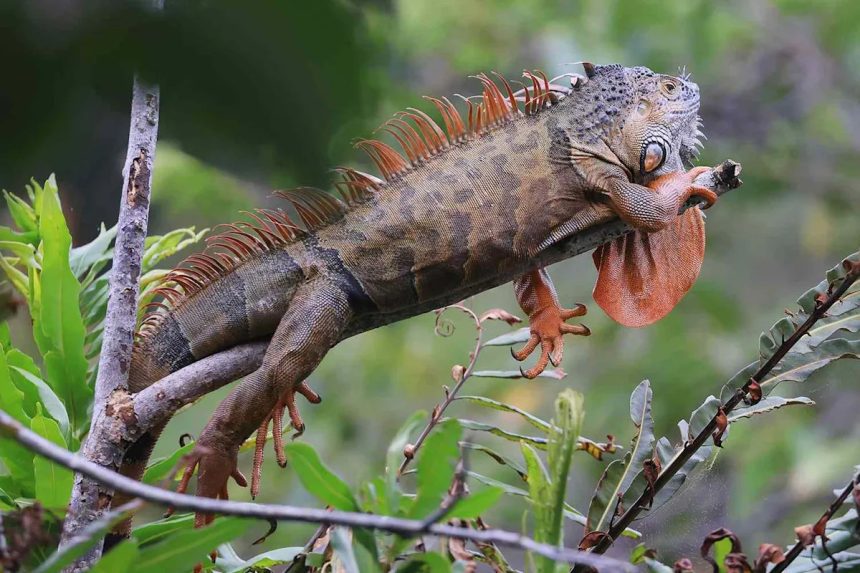NEED TO KNOW
-
Central and Southern Florida residents are under a “falling iguana watch”
-
On Tuesday, Nov. 11, temperatures dropped to the 30s and 40s in Florida, causing iguanas to fall out of trees
-
The iguanas are temporarily paralyzed by the cold weather, but are not dead
Some may prefer it raining cats and dogs over a cold front full of falling iguanas.
Weather experts warned Central and Southern Florida residents they should be on “falling iguana watch” after temperatures dipped into the 30s and 40s on Tuesday, Nov. 11.
As cold-blooded creatures, iguanas’ bodies shut down when temperatures drop below 40 degrees as a “defense mechanism against the cold,” according to The Weather Channel.
The reptiles can fall out of trees and stay paralyzed on the ground, appearing dead, until the weather warms up. Iguanas like to sleep in trees, which proves dangerous when the temperatures in the Sunshine State unexpectedly dip.
Never miss a story — sign up for PEOPLE’s free daily newsletter to stay up-to-date on the best of what PEOPLE has to offer, from celebrity news to compelling human interest stories.
The Weather Channel advised Floridians against attempting to “rescue” the iguanas by putting them in their cars to warm them up, noting that when the lizards can reawaken, it can lead to disastrous results.
Floridians are sharing photos of cold-stunned iguanas left paralyzed by the chilly temps.
“WE HAVE FALLING IGUANAS!” WINK weatherman Matt Devitt posted along with a picture of an upside-down iguana on Facebook. “This big guy just fell out of a tree in Port Charlotte this morning, where it was 38°. It’s not dead, just cold-stunned. Only in Florida!”
Local station WPBF 25 also reported several photos of fallen iguanas, joking, “That’s not road kill!”
In 2022, Zoo Miami communications director Ron Magill explained to CBS News Miami, “Iguanas start getting sluggish once it drops below 50. Below the mid-40s, they can enter a dormant state and fall out of trees. They look dead, but they’re not, they’re just stunned.”
Bruce Bennett/Getty
Green iguana in Delray Beach, Fla. – stock image
The Florida Fish and Wildlife Conservation Commission (FWC) shared tips for those wanting to help the paralyzed iguanas.
“Do not bring it into your home, vehicle, or building,” the FWC urges. “Non-native green iguanas are wild animals, and once they recover and warm up, they could act defensively.”
The green iguana is also on Florida’s prohibited list, and it is illegal for anyone to possess a green iguana without a permit.
“Because they are not native to Florida, it is illegal to release or relocate captured iguanas,” the FWC shared, urging residents to contact a professional wildlife control operator if they want a green iguana removed from their property.
Read the original article on People









